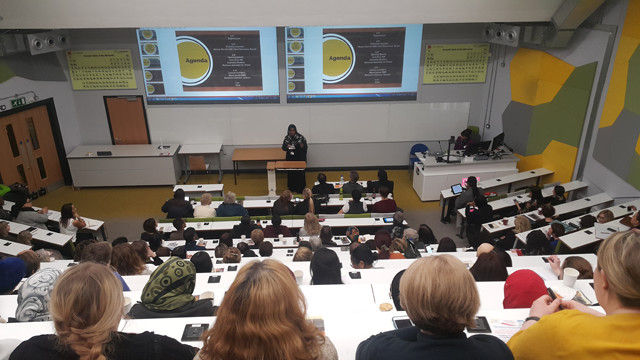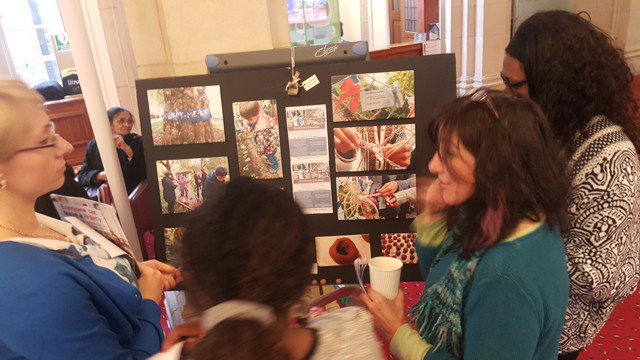Violence against women is not random, the victim’s’ background is usually responsible for their experiences

On 11 March, Bawso, a registered charity which delivers specialist services to people from Black and Minority Ethnic (BME) community in Wales, conducted its first annual lecture.
There were more than 160 people in attendance at Shandon Lecture Theatre at Cardiff University to listen to the lecture titled ‘Reframing Violence Against BME Women and Girls’.
The lecture was given by Marai Larasi MBE, executive director of Imkaan. The attendees came from diverse background including practitioners from public and voluntary organisations, academics, former service users and individuals from the community.
Besides marking the International Women’s Day on 8 March, Rama Furry, the event and publicity coordinator, also explained the need “to highlight the challenge of raising awareness of the practices within a context where BME cultures are perceived as more patriarchal and barbaric than others.”
Marasi discussed various social and cultural issues faced by BME women. Her lecture included statistics and women’s testimonials about violence against them. She also touched upon issues of culture misinterpretations and patriarchy.
On account of their background, BME women are often misunderstood by the society they live in. Marasi said that they come off as aggressive when it is usually not the case.
During the lecture, the attendees were not only listening to the speaker but were also actively engaging in discussion. A former service user of Bawso shared her experience and how Bawso helped her restart her life. Another attendee, who is a former activist in London, confessed that she benefited from the lecture and offered BME women a platform to practice women’s activism.
Furry said that the purpose of this event was to discuss that members of the BME community are inherently violent. “[This is because] they are primarily from the communities which practice forms of violence related to culture and traditions such as female genital mutilation, forced marriage, and honour based violence,” said Furry.
Elaborating on the lecture Furry said, “We also talked about the language used to describe experiences of BME women which sometimes results in the labelling of communities. The lecture was also aimed to put forward a case for rephrasing how experiences are described, so as to change the narrative.”

